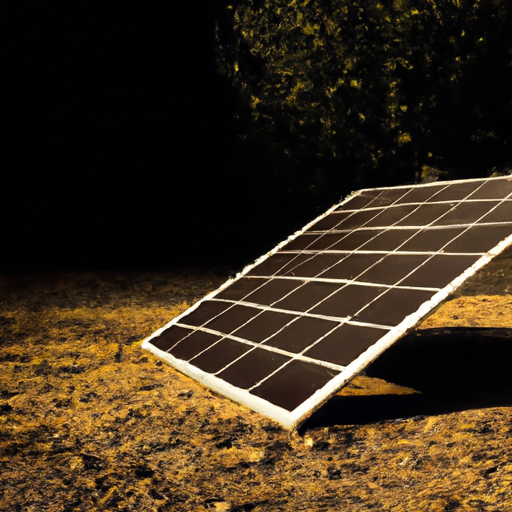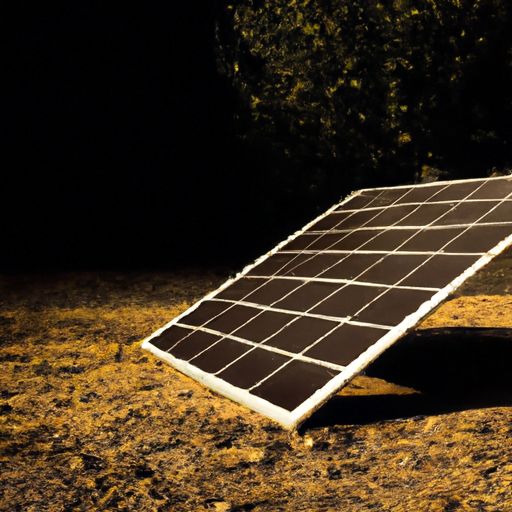Living off the grid may seem like an appealing and sustainable lifestyle, but for beginners, it can quickly become overwhelming. In “Off-Grid For Beginners: Common Mistakes And How To Avoid Them,” we will explore the various challenges that newcomers encounter and provide practical tips on how to navigate them successfully. From choosing the right location to managing energy and water resources, this article aims to equip you with the knowledge and insights needed to embark on your off-grid journey with confidence and avoid common pitfalls along the way. So, get ready to learn from the experiences of others and make the most out of your off-grid adventure.
Choosing the Right Location
When it comes to off-grid living, choosing the right location is crucial. Several factors need to be considered before settling on a spot. First and foremost, you need to think about the climate and weather conditions of the area. The climate will determine the type of energy sources available and the viability of certain off-grid systems. For example, if you live in an area with abundant sunshine, solar power might be a great option. On the other hand, if you’re in an area with consistent wind patterns, wind power could be a more suitable choice.
Another important aspect to consider is land accessibility. You’ll need to ensure that you have easy access to your off-grid property. Check the condition of the roads leading to the location and consider the accessibility during different seasons. It’s also essential to evaluate the availability of natural resources in the area. If you rely on wood for heating or cooking, make sure there’s an ample supply of trees for fuel. Additionally, assess the availability of water sources, such as rivers or groundwater, as access to water is crucial for off-grid living.
Lastly, be sure to examine local regulations and permits. Some areas may have restrictions on off-grid living or specific requirements for alternative energy systems. Familiarize yourself with any regulations or permits that may be applicable to your chosen location to avoid any legal issues down the road.
Selecting the Suitable Power Source
Choosing the right power source is an important decision when living off-grid. There are several options to consider, each with its own set of advantages and disadvantages. Solar power is a popular choice for off-grid living due to its renewable and environmentally friendly nature. It harnesses sunlight and converts it into electricity through solar panels. However, solar power may not be suitable for areas with limited sunshine or during extended periods of cloud cover.
Wind power is another option worth exploring. It utilizes the power of the wind to generate electricity through wind turbines. Wind power can be a reliable source of energy if you live in a location with consistent and strong winds. However, it’s important to note that wind turbines can be noisy and may not be well-suited for densely populated areas.
Hydroelectric power is a viable option if you have access to a flowing water source, such as a river or stream. It generates electricity by using the natural movement of water to turn turbines. Hydroelectric power can provide a consistent and reliable source of energy, but it requires proximity to flowing water, which may limit its availability depending on your chosen location.
Additionally, consider assessing the potential for geothermal energy. Geothermal power harnesses the natural heat from the Earth’s interior and converts it into usable energy. This option is highly dependent on the geographical location and availability of geothermal resources.

Sizing Your Off-Grid System
Once you’ve determined the suitable power source for your off-grid lifestyle, it’s vital to correctly size your system to meet your power needs. Start by determining your power consumption requirements. Consider your daily energy usage, including appliances, lighting, heating, and cooling systems. This will give you an idea of the amount of electricity your off-grid system needs to generate.
Next, calculate the necessary battery capacity. Batteries store the excess energy generated by your power source for use during periods of low or no production. Properly sizing your batteries ensures you have enough stored energy to meet your needs when your power source isn’t producing electricity, such as during cloudy days or calm winds.
Choosing the appropriate solar panel size is another crucial step in sizing your off-grid system. The size of your solar panel array will depend on the available space and the amount of sunlight your location receives. Take into account the average daily sunlight hours and the angle and orientation of your panels to maximize their efficiency.
Lastly, consider the need for a backup generator. While renewable energy sources may be sufficient for most of your power needs, having a backup generator can provide peace of mind during extended periods of low energy production or in emergencies. Evaluate your critical energy needs and assess the appropriate generator size to maintain power continuity.
Managing Water Supply
Water is an essential resource for off-grid living, and proper management of your water supply is crucial. Start by exploring effective rainwater collection methods. Installing rainwater catchment systems, such as gutters and storage tanks, allows you to collect and store rainwater for use in daily activities, including watering plants, cleaning, and bathing.
If your location lacks access to a reliable water source, consider well drilling as an option. Well drilling allows you to tap into groundwater reserves, providing a consistent water supply. It’s essential to consult professionals and adhere to local regulations when drilling a well.
Additionally, consider water filtration and purification solutions. Off-grid living often requires relying on untreated water sources, such as rainwater or well water. Implementing proper filtration and purification systems ensures the water you consume is safe and free from contaminants.
Implementing efficient water usage strategies is also crucial in off-grid living. Conserving water not only helps you stretch your supply but also reduces the energy required for pumping and treating water. Utilize low-flow fixtures, such as showerheads and faucets, and practice water-saving habits, like capturing and reusing greywater for non-potable purposes.

Efficient Energy Usage
In off-grid living, optimizing energy usage is essential to make the most of your available resources. Investing in energy-efficient appliances and devices can significantly reduce your energy consumption. Look for appliances with high energy ratings and choose efficient lighting options, such as LED bulbs. These small changes can make a big difference in your energy usage.
Implementing smart lighting strategies can also help reduce energy consumption. Use natural light during the day by strategically placing windows and utilizing skylights. Install dimmer switches and timers to ensure lights are only used when necessary.
Utilize natural ventilation and insulation to regulate the temperature inside your off-grid home. Proper insulation reduces heat loss during colder months and minimizes heat gain during warmer months. Natural ventilation techniques, such as cross-ventilation and using adjustable vents or windows, can help cool your home without relying heavily on electric fans or air conditioning.
Explore passive heating and cooling techniques to further reduce your energy needs. Incorporate passive solar design principles by orienting your home to maximize solar exposure and incorporating thermal mass, such as concrete or adobe walls, to absorb and store heat. Proper shading and insulation techniques can also help keep your home cool in hot climates.
Waste Management
Proper waste management is crucial for sustainable off-grid living. Implementing proper recycling practices is a simple yet effective way to minimize waste. Set up separate recycling bins for different materials, such as plastic, glass, paper, and metal. Research local recycling centers or programs to ensure your recyclables are properly processed.
Installing composting toilets is another eco-friendly waste management option. Composting toilets break down human waste into nutrient-rich compost that can be used in gardening or landscaping. They eliminate the need for traditional plumbing systems, reducing water consumption and contributing to a more sustainable lifestyle.
When it comes to sewage treatment, explore alternative options that minimize the impact on the environment. Consider options like greywater systems, which reuse water from sources like laundry and dishes for irrigation purposes. Implementing wastewater treatment systems like constructed wetlands can also be a more sustainable approach.
Managing waste disposal responsibly is critical. Minimize the amount of waste produced by practicing conscious consumption and opting for reusable or biodegradable alternatives. Dispose of waste correctly by following local regulations and guidelines, especially if you live in a remote area without regular waste collection services. Explore options for composting organic waste and consider establishing a compost pile or bin on your property.

Maintaining and Troubleshooting
To ensure the smooth operation of your off-grid system, conduct regular maintenance checks. Regularly inspect and clean your solar panels to maximize their efficiency. Monitor battery health, ensuring they are properly charged and functioning optimally. Keep an eye on your power production and consumption to identify any anomalies or issues that may arise.
Troubleshooting common issues is an important skill for off-gridders. Educate yourself on the common problems that may occur with your chosen power source, whether it’s solar, wind, hydroelectric, or geothermal. Familiarize yourself with the troubleshooting procedures and consult relevant resources to address these issues effectively.
In some cases, seeking professional assistance may be necessary. If you encounter complex electrical or mechanical problems, it’s wise to consult experts who specialize in off-grid systems. They can provide valuable insights, identify potential safety hazards, and help you resolve issues more efficiently.
Building a Supportive Community
Off-grid living can sometimes feel isolating, but building a supportive community can enhance your experience. Networking with fellow off-gridders allows you to share knowledge, experiences, and resources. Join online forums or social media groups dedicated to off-grid living to connect with like-minded individuals.
Take advantage of opportunities to collaborate with others on projects and resources. Working together on initiatives like bulk purchasing of equipment or sharing maintenance and repair services can help reduce costs and increase efficiency. Attend community events or workshops focused on off-grid living to meet others who share your interests and goals.
Creating a sense of community and support is crucial for long-term sustainability. Organize gatherings or potlucks with your fellow off-gridders to nurture these relationships and create opportunities for learning and growth. Sharing your experiences and lessons learned with others can inspire and motivate them on their off-grid journey.

Financial Considerations
Understanding the financial aspects of off-grid living is important for planning and budgeting. Start by evaluating the initial setup costs. This includes the cost of purchasing and installing your off-grid system, such as solar panels, batteries, wind turbines, or hydroelectric equipment. Research and compare prices from different suppliers to ensure you get the best value for your investment.
Ongoing expenses should also be considered. This includes maintenance costs, replacement of parts or batteries, and fuel or maintenance requirements for backup generators. Estimate these costs based on the expected lifespan and recommended maintenance schedule of your off-grid components.
Explore available grants, incentives, and tax benefits that may be applicable to off-grid living. Some local or national governments offer financial assistance or tax credits for renewable energy installations. Research the eligibility criteria and application process for these incentives to take advantage of any potential financial assistance.
Consider the long-term cost savings associated with off-grid living. While the initial setup costs may be higher than traditional grid-connected systems, the savings on utility bills in the long run can be substantial. Calculating and comparing the potential savings over several years can help justify the investment and make informed financial decisions.
Preparing for Emergencies
Off-grid living requires being prepared for emergencies, including power outages or other unforeseen events. Having a plan for power outages is crucial. Ensure you have enough backup power capacity to maintain essential functions during extended power outages. This may include keeping critical appliances, such as refrigerators or medical devices, running.
Stock up on essential supplies to sustain yourself during emergencies. This includes food, water, medical supplies, and other necessities. Create an inventory of essential items and periodically check and rotate perishable goods to ensure they are fresh and usable.
Developing an emergency communication plan is essential. Ensure you have reliable means of communication, such as a battery-powered radio or satellite phone, to stay informed and connected during emergencies. Share your emergency plan with your support network or community, and establish a means of checking on each other’s well-being if communication networks are down.
Consider backup systems for critical needs, such as water pumps or heating systems. Having alternative methods to supply water or generate heat can prevent major disruptions during emergencies. Explore backup options, such as hand pumps or wood-burning stoves, which can provide reliable alternatives when the main systems are not functioning.
Living off-grid can be a fulfilling and sustainable lifestyle choice. By carefully considering factors such as location, power sources, system sizing, water management, energy efficiency, waste management, maintenance, community building, financial considerations, and emergency preparedness, you can set yourself up for a successful off-grid experience. Take the time to research, plan, and implement the necessary steps to avoid common mistakes and create a rewarding off-grid lifestyle.





